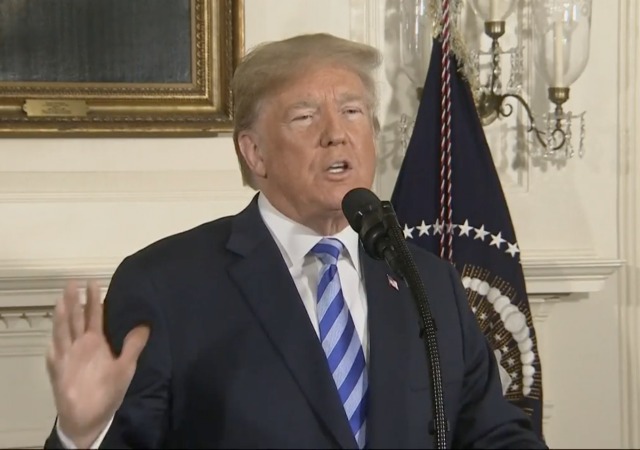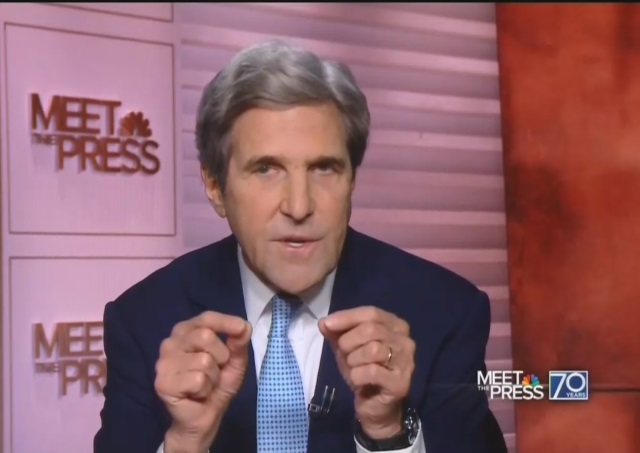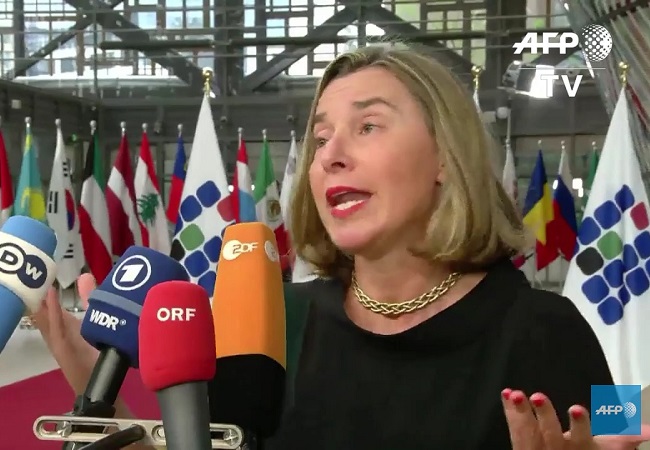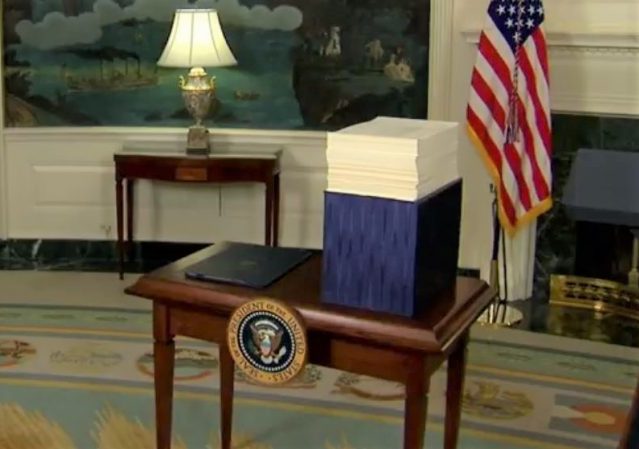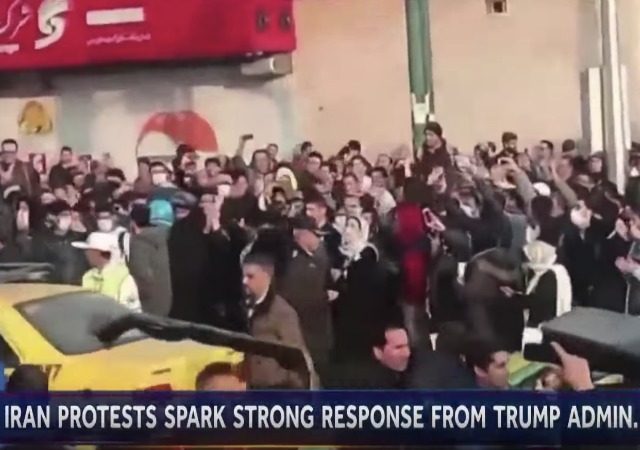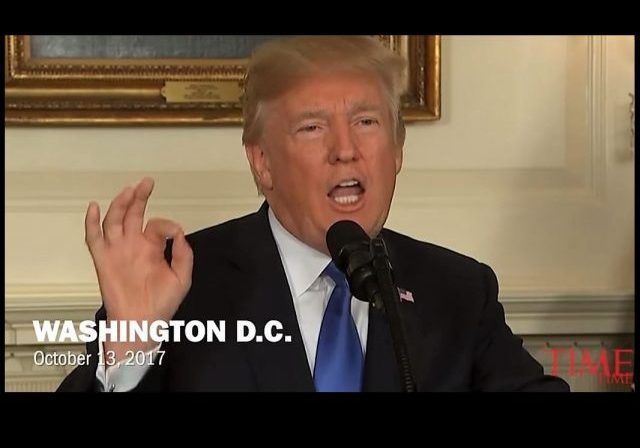Trump: ‘The United States Will Withdraw From the Iran Nuclear Deal’
on May 08, 2018
50 Comments
President Donald Trump announced that America will withdraw from the Iran nuclear deal.
Trump has consistently threatened to withdraw from the deal, but extended it a few times in his first year. However, in January, Trump said this would be his last waiver "unless the deal is strengthened by Congress and European allies."

